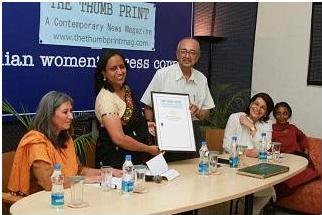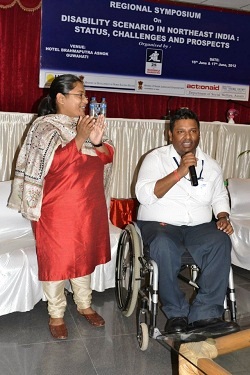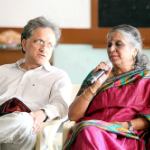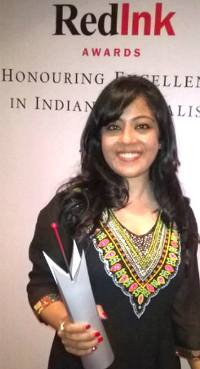Every writer I know has struggled with inspiration at some point: how to tap it, how to hold it, how to use it, how not to lose it. The creative muse is a temperamental creature and must be handled gently. My main challenge is finding sufficient time to attend to her, as and when she decides to drop by for an unannounced visit. I’ve lost more than one story because I didn’t have the headspace – thanks to my day job, and what is laughingly known as “having a life” – to properly unwrap and explore the parcel of riches she came to deliver.
My views on fiction writing can be summed up in the wonderful quote from American playwright and screenwriter Michael Kanin, who said “I don’t like to write, but I love to have written.” It’s hard to relax until that precious first draft is safely on the page. After that, I can take a deep breath and get down to tinkering with a piece until I get it right. But in truth, I do so “love to have written”, that it’s what actually keeps me writing. Well, that and the fact that I need to empty my head on a fairly regular basis.
Writing well is hard work – at least, for some of us. The oft-quoted calculation of a process that consists of 10% inspiration and 90% perspiration would probably have to be adjusted to raise the perspiration factor closer to 95% in my case. It’s not that inspiration is unimportant, of course; more that following through on those ideas can sometimes be the real challenge.
As for the crucial 5% that provides the fuel to get started on that long road trip, it’s interesting to see how inspiration can emerge from the most mundane of sources – day-to-day events like the passing glimpse of a scene that triggers a question in your mind, or a snatch of conversation overheard somewhere.
Waiting in the car for a friend who was running an errand in my hometown of Dhaka, I looked across the street once to see two young children, clearly very poor, lingering outside a general store. As they watched a man eating an ice cream, quite oblivious to their longing stares, one of them picked up the discarded wrapper and gave it a quick, shameful lick before passing it to his companion.
The incident triggered a strong reaction: both in terms of my immediate response, and in the form of the short story that I wrote over a decade later, titled “Waiting for God”. It tells how a constellation of disparate characters – a teenage girl from a typical middle-class family, a nouveau riche businessman’s wife, and a young boy whose family live in a shantytown – experience the consequences of a brief moment when their lives unexpectedly intersect.
Sometimes, inspiration can be a lot more complicated. A family friend recently asked a question about my story “Getting There” which caught me off guard. The piece is about a young woman who finds herself the reluctant guardian of her sister’s children. I had always considered the story as pure fiction. The protagonist came from a family very unlike mine, and faced a set of life challenges that were quite alien to me. But as our friend pointed out, I had once found myself in the unanticipated position of being a caregiver to a child in the aftermath of a family tragedy. Put like that, the similarity seems obvious, but until then I had never seen any parallels with my own life; and I will still only admit to an unconscious inspiration – if that – in this instance.
It became clear to me some time ago that writers view inspiration very differently. During a conversation with two people, a senior colleague and one of my peers, I was amused and slightly shocked when the older writer joked, “It’s a terrible thing to be happy when someone is telling you about a traumatic experience they have had, and you immediately start thinking, ‘What a great idea for a story’!” My friend responded, without missing a beat, “Yes, emotional roadkill can be put to good use in fiction.”
I understand exactly what they mean, but will confess to a degree of unease with this approach. Conversations can provide very interesting raw material, and they can also spark off some great ideas. But the ethical aspect gets a tad complicated if you use someone’s story without their permission; particularly if the story that you tell remains true to the version that the person shared with you.
This is even more the case if you are a “fixer” in your family and friend circles, someone whom people approach for advice or assistance. I have regularly been the go-to girl for friends, family and on occasion, total strangers (with respect to the latter, I sometimes wonder if there is an invisible brand on my forehead that glows neon-bright, telling sad, lonely or disturbed people that I’m available for a chat). So while I fully accept that it can be tempting to view the stories of others as “roadkill” – and I certainly don’t think there is anything wrong with using a story you’ve heard as the take-off point for a story you want to write – at the risk of being labelled a goody two shoes, I’m going to assert that this is one line that is best trodden with care.
It is different when you are writing about something that you have actually been a part of, because that is your story too, alongside the others involved. Though even there, I have sometimes have struggled with the fact that what makes for the best story-telling may not be quite as palatable to the other participant(s). Purists will insist that a writer’s story is his or hers alone; as Anne Lamott robustly asserts, “You own everything that happened to you. Tell your stories. If people wanted you to write warmly about them, they should’ve behaved better.” And at one level, that’s true.
Find us on facebook: facebook.com/TheThumbPrintMag







































